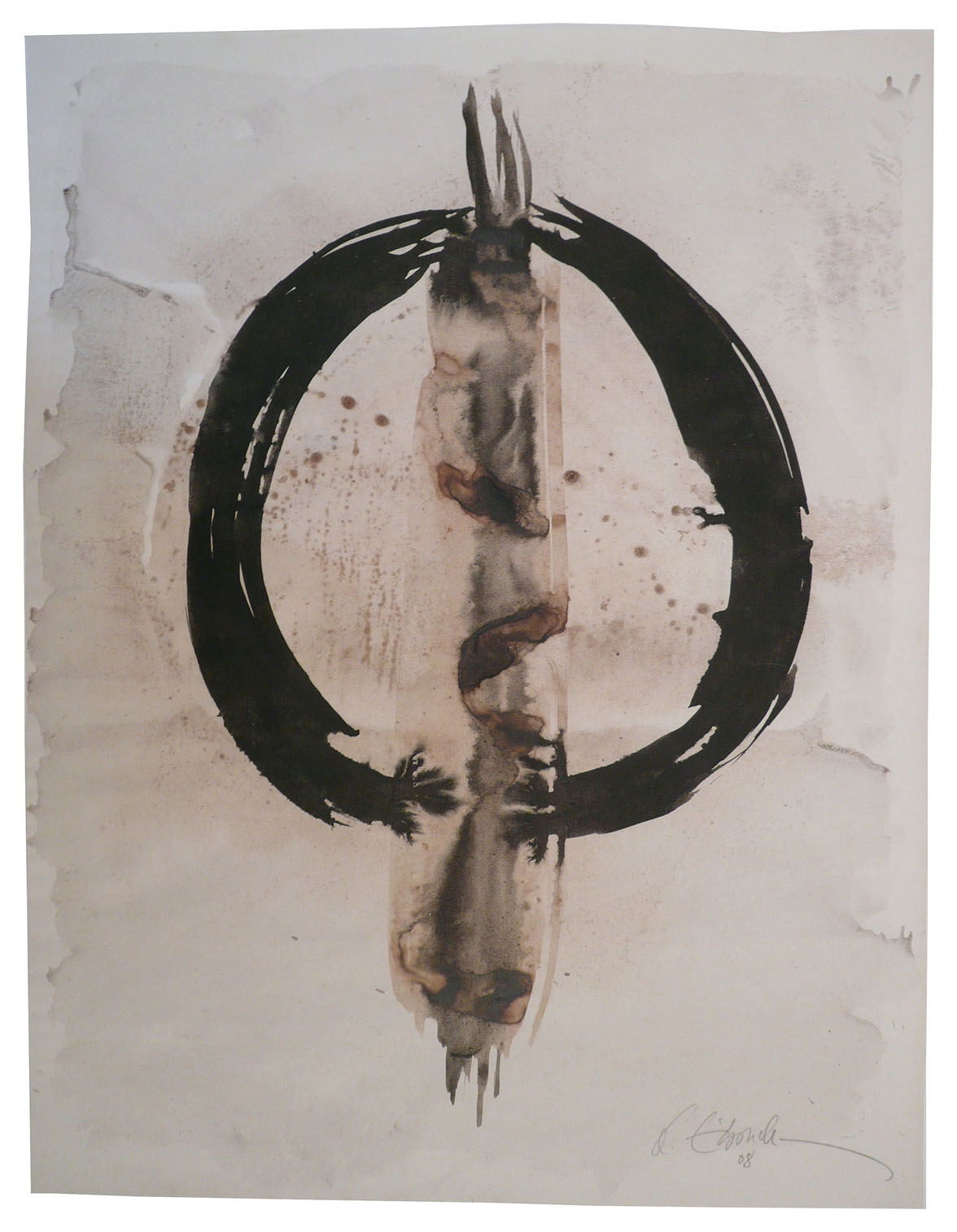The Rockers
On an island visited by many people (thirty-some years ago) stands the Rising Sun: an aging, grand hotel overlooking the sea. Cobwebs drape the beveled-glass entrance door, and through the spider-threaded veil is a tall, mahogany desk. An antiquated clipboard-pen set and hurricane lamp wait for guests: “PLEASE REGISTER HERE.”
The old, hard-of-hearing man backs away from peering through the door and swallows hard. He slips his hand into his shirt pocket to turn up his hearing aid. He fastens the top button of his overcoat and tries the doorknob. He could hear it rattle when turned, but it was locked. Of course, what did he expect — an open invitation?
He walks along the wrap-around porch to a window on the side of the hotel lobby, the wood creaking with his footsteps. He wipes the salt mist off a portion of the glass with his coat sleeve. A dark, portentous oil portrait, painted with no highlight in the eyes, hangs crooked on the wall behind the desk. He remembers this portrait with the perpetual stare that followed him from the main door to the picture window overlooking the shore.
The man walks cautiously down the wide porch to the back deck, mindful of the curled-up boards and pushed-up nails. He needs to see this every year on this day for this is where it all ended…for him.
Along the deck rests the day’s only occupants: wooden rocking chairs, an Amish-like community, absorbing the Atlantic spray; hard, quiet, sunburned, separate, fastened to customs and rules.
The man pushes one of the rockers. Instead of the smooth rocking motion he was expecting, it wobbled. He still can’t remember which chair it was.
The man walks over to another rocker. Was this the one? He gives it a nudge. One of the spindles supports falls out and lands with a clatter on the deck. The amplified sound startles him, and he steps back quickly, looking up and down the porch. Silly. What’s he looking for? Someone to arrest him for pushing a chair? He turns his hearing aid volume down a bit. He goes to a chair down by the end, one that looks sturdy, and eases himself onto it.
He looks out and sees the sky subtly pulling down its dusky-blue shade. Down below, on the dirt road that leads to a boat launch, a streetlight flutters as electrical surges ignite mercury vapors. And far off to the right of the launch is a jetty with a landmark beacon at its end that blinks off and on continuously.
A foghorn with a lonesome moan begins the nightlong, intermittent cycle. The man leans back in the chair and begins to rock. Even with the 40-decibel loss in both ears, he could still hear and enjoy the horn’s prolonged, low frequency blasts. He remembers hotel guests from the past complaining about being kept up at night by the all-night warning. He always told them he found it soothing and puts him to sleep.
The chairs inhale the cool, moist, salt air, and gently sway to the ebb of twilight. The floorboards pick a raspy tune punctuated by groans from rusty nails.
The man takes a pill out of his coat pocket and looks at it a long time. Then, he puts it in his mouth. The capsule immediately sticks to what little moisture is on his tongue. He leaves it there for a little bit until enough saliva builds up. He swallows the pill and closes his eyes.
The foghorn wail drifts by again. An Acadian rocker (acquired from an antique store in Bar Harbor) with a sturdy but splintered oak frame leans back and smiles at an old memory: an early-spring day with the sun drawing steam from the gnarled platform wet with morning dew. The innkeeper’s cat slinked by leaving paw prints and then came around under the rocker’s seat. The slightly cross-eyed Siamese stretched and sharpened its claws on one of the four ornately carved legs, sending cold chills up the chair’s spindled back. The rocking chair — with its cleft feet firmly planted in long, tapered runners — rolled hard over the thoughtless cat’s tail, hoping to put a kink in it. Day after day of shed fur and hairballs all over the seat was absolutely disgusting. And that repulsive purring. No, not purring — the phlegmy snore of an overweight man.
The other chairs nod recalling the feline’s fateful day (and what an ear-piercing caterwaul).
The man stops, opens his eyes and turns his head to the right, sensing someone or something on the other chairs moving. His vision swirls, and when it settles, he doesn’t see anything except the silhouettes of the rockers facing the ocean. He turns his head back and closes his eyes again and rocks.
An old New England fiddleback, transported from the piano room of a Victorian mansion in Essex recollects a long-ago evening when a teenager with muddy sneakers jumped on her newly varnished seat. The pimply young man grabbed her weak back and swung wildly, whooping his head off. The rubber treads on his soles made horrible sucking sounds while cramming mud between her softwood slats. Finally, unable to withstand the filth any longer, she tipped herself back and bucked the bewildered boy against the outside hotel wall.
The line breaks. The chairs snicker at the memory of the fourteen-year-old pell-melling through the air.
Again, the man stirs at the sound of wood on wood but ignores the source. Instead, he stops and looks up at the night sky through half-closed eyes for comfort. He sees Orion, the Hunter, filled out in flesh between the stars. Orion’s legs are moving towards some destination, perhaps towards Eos his lover, the goddess of dawn. The man resumes his swaying to and fro.
A rustic Bentwood found intact – with bark and twig scars – on the back porch of a deserted home in the Adirondacks, remembers a Fourth of July weekend — ruined by a fat two-year-old. The girl’s mother plopped her down on the chair and left her to eat a double-dipped strawberry cone. Moments later, the clumsy child knocked a scoop of ice cream onto the intricately woven cane seat. She began to bawl even though another scoop is left. The girl leaned forward and tried to slide off to tell her mother what happened. The chair refused to budge. It was as if the chubby kid were stuck in a highchair. Trapped, she howled until a grown-up came to the rescue.
The chairs chuckle to and fro at the Bentwood’s recollection. They nudge one another at how surprising it was that their fragile friend had mustered the courage to stand her ground.
A warm, southerly wind blows over the veranda, sweeping away the fog. The man struggles to lift open his eye — the lids feel like lead. A blue-black tinge in the sky outlines the horizon. The foghorn wails again and the beacon signal continuously. The man’s eyelids get heavier and heavier and then closes.
Two Shaker slat-backs, handmade the same week by a Mennonite cabinetmaker, hurriedly tap their rockers for attention. It is getting close to daybreak — remember the beautiful, elderly couple? The sweet, hearing-impaired man and his wife who had cancer? The chairs swing solemnly.
Holding her tenderly by the arm, the gentleman escorted his wife out to the deck every morning. He eased her onto the simple, elegant chair she loved and spreads a patchwork quilt over her legs. He went back inside to buy hot drinks to ward off the morning chills.
Wrinkled like the grain pattern, the woman’s fingertips caressed the chair’s worn-smooth arms and came to rest on the mushroom knobs at the end. She leaned back and turned her head to the side. The sweet smell of maple brought a faint smile to her lips. How peculiar that an aroma could conjure, all at once, so many memories: their gingerbread-trimmed house in the country, raking leaves with her grown son, swinging with her granddaughter on her lap— Her hands suddenly clutched the palm-sized knobs. Her face contorted. A tear rolled off her cheek and seeped into wooden pores. The chair rocked delicately.
In the hotel restaurant, the cook always prepared a batch of hot cocoa at seven a.m. “None of that instant, artificial slop,” the innkeeper would say to his cook; “those two come here each year as if they are on their first honeymoon, and they’re the perfect touch to our seaside resort.” Walking away, he would turn and add, “They cause no problems so treat them like fine china, yes?”
The cook took out a couple of handcrafted mugs with seashell imprints and filled them with the steaming beverage. Next, he topped off the drinks with real whipped cream and bittersweet chocolate shavings.
Hearing the screen door kick open, the woman quickly wiped her eyes. Her husband pulled his rocker alongside hers so that their chair arms rubbed one another. They held hands, smiling, rocking slowly and easily, as the ocean introduced a new dawn.
North along the shoreline, the man saw a Great Blue Heron take off from behind a tuft of sea grass. The bird, flying in a low and graceful arc, skimmed the crest of a breaking wave. The woman’s hand tightened on his, and then loosened for the last time. His head jerked from a quick, puncturing pain on his knuckles. Her arm fell.
His gaze returned to the back of his hand where dark-pink, crescent impressions, left by her fingernails, faded from his skin. Gingerly, he picked up his wife’s limp hand. Not ready to look at her face, he slowly twirled the diamond ring that he slipped on her finger forty-eight years ago at the altar.
An orange-magenta glow blooms over the water. At the far end of the porch, the man slumps over his chair. The beacon blinks off and on. The foghorn releases its last warning for the night, a last call of assistance even though it can’t prevent a collision that may take place at sea; just like the old man’s hearing aid emitting high-pitched feedback from the earmold hanging loose out of his ear, it can’t help him hear and make things right again.
In daylight, the rocking chair clan remains still, but when nightfall comes, the surf will roll, crash, and spew shells and seaweed, leaving behind the day’s high-tide mark. Then, the mist will creep past the shore up to the hotel. The deck will creak, and a rocking chair will rock, slowly, back and forth, back and forth.
Willy Conley of Hanover, Maryland (USA) was born profoundly deaf. His most recent book is Visual-Gestural Communication: A Workbook in Nonverbal Expression and Reception. Other books are Listening Through the Bone – Collected Poems, The Deaf Heart – a Novel, and Vignettes of the Deaf Character and Other Plays. Conley is a retired professor and former chairperson of Theatre Arts from Gallaudet University, the world’s only liberal arts university for deaf and hard-of-hearing students. His upcoming book of poems, The World of White Water, is due out in October 2021 by Kelsay Books. For more info about his work, please visit: www.willyconley.com
Continue to a review by Moss Pepe >>

